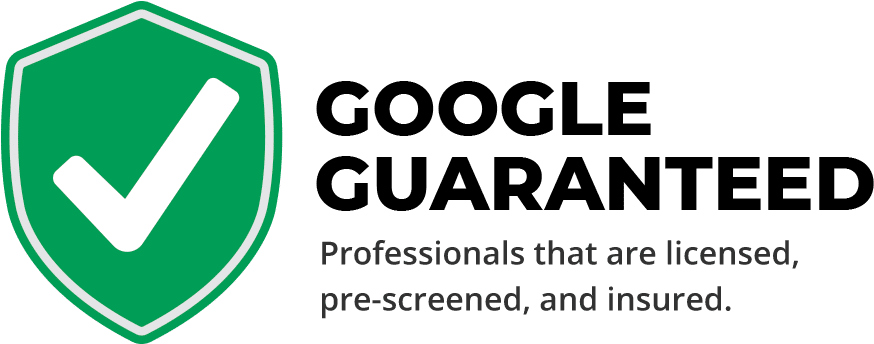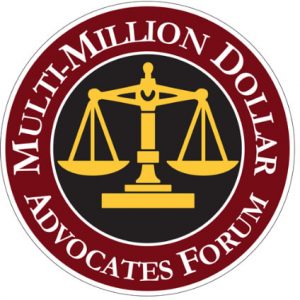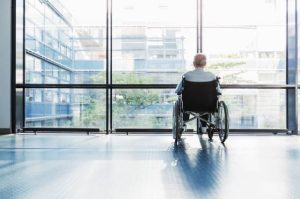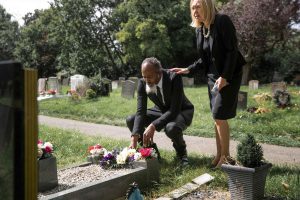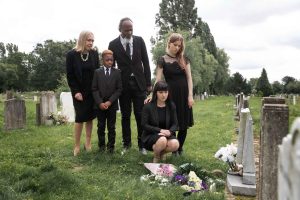Nursing Home Abuse Attorneys Florida
After a long life of raising children and caring for others, almost half of all adults will enter a nursing home at some point in their lives. Unfortunately, after devoting their lives to others, our parents and grandparents, neighbors and leaders, are also facing an alarming rate of suing nursing home abuse. In fact, as many as one in six residents of a nursing home or care facility are abused each year. One of the disturbing aspects of this is that these victims cannot often articulate or inform about the abuse which leads to a continuation of the abuse. Similarly, because of issues such as senility and senile dementia, some of these patients may not be believed when they do report abuse. Regardless of the situation, elder abuse and nursing home abuse is something that can be and must be stopped. After years of caring for us, it is important that we care for them when they need it most. Contact our Florida nursing home abuse lawyer for more help.
Table of Contents
- Statistics and Data
- How to Report Nursing Home Abuse
- Types of Elder Abuse
- Signs and Symptoms
- When is a Nursing Home Liable for Elder Abuse and Neglect?
- Nursing Home Abuse and Prevention
- How Can We Help?
Statistics and Data
There are currently almost 90 million people in the United States over the age of 65. An estimated 1.5 million of those spend almost $90,000 a year for nursing home care. Even though elder abuse does not get the attention or media exposure as other forms of abuse, there is actually a plethora of data and statistics on the subject. For instance, a recent study from the National Council on Elder Abuse found that a staggering 10% of our elder population had been abused in the previous year. Furthermore, less than 10% (about 1 in 14) instances of elder abuse ever get reported. Of the different areas of abuse that were reported, financial abuse was higher than emotional, mental, or physical abuse. However, neglect presented the highest area of abuse with 58.5% of cases involving neglect. The average abuse victim is white (67%) and female (66%) with the average age of the abused being around 77.
How Do I Report Nursing Home Abuse in Florida?
In order to prevent nursing homes from abusing a loved one, you should be proactive. Consider the following guidelines for assessing a nursing home or assisted living facility:
- Look at state evaluations on the government’s Medicare website.
- Be familiar with state and federal nursing home regulations.
- Talk to the patients and residents and personnel to see what they say about the facility.
- Stay away from homes that restrict access to the patients.
- Visit as often as possible and don’t announce your visits ahead of time.
If you suspect nursing home abuse, it is imperative that you report it immediately. Do not wait to make a report or try to investigate on your own; leave that to the professionals. But you do want the report made as soon as possible so that evidence can be collected. Here are some general guidelines for reporting nursing home abuse. Our nursing home abuse attorney in Florida investigate your case.
- First, if the patient is in immediate danger, you shouldn’t wait at all. Instead, call the police or 911 immediately.
- You should also file a report with Adult Protective Services (APS) in your area. This can be found at the National Center on Elder Abuse website or by calling 1-800-677-1116.
- APS will generally take the call and be the “first responder” to investigate. However, they may turn the case over to the police or a state long-term care (LTC) ombudsman.
Types of Elder Abuse
There are actually seven different types of elder abuse, each with its own set of problems and signs. It may seem like a lot, but family members should be on the lookout for all of these as there is always a potential for abuse in these types of situations. These types of elder abuse include:
- Physical Abuse—This type of abuse involves the intentional use of force that results in physical pain, injury, or other impairment for the victim. One thing to note is that physical abuse does involve intent. An accidental injury does not constitute abuse. However, physical abuse does fall into two categories:
- Striking—If an employee of a nursing home hits or strikes or shoves a resident, then this constitutes physical abuse.
- Restraint—Another, more insidious, form of physical abuse is the inappropriate use of restraints. Sometimes it may be necessary to restrain a patient if he or she poses a threat to himself or others. But, if a nursing home does this, there are state regulations regarding how long they can be kept in restraints. If the home is keeping a patient constantly tied down, or is using drugs to keep them sedated so that their movements are restrained by their sedation, then the nursing home is physically abusing the patient. Nursing homes are also not allowed to confine a patient such as a “solitary” or “quiet” room that they cannot leave.
- Emotional Abuse—Emotional abuse is more difficult to prove. Although physical abuse will leave visible marks and signs, emotional abuse is often less tangible. However, that does not mean that it is not abuse. Emotional abuse also falls into two sub-categories. These include:
- Verbal Abuse—Verbal abuse can include intimidation by an employee towards a patient, such as verbally threatening them about possible punishments if they do something wrong. This type of abuse can also include humiliation, ridicule, habitual blaming, and scapegoating. For instance, if a patient is constantly ridiculed and humiliated because she is soiling the bed, then this can cause the patient anxiety because she may be incontinent and not able to control the situation. This constant humiliation constitutes emotional abuse.
- Non-verbal Abuse—Staff members can also emotionally abuse patients without using words. This can include ignoring the patient or isolating her, especially as punishment for behaviors. Additionally, terrorizing or menacing the patient can be considered abuse. However, these are again very hard to prove without exact physical evidence.
- Sexual Abuse—Perhaps the most disturbing and least talked about aspect of elder abuse is sexual abuse. This one is not spoken of as much because of the uncomfortable nature of the abuse and the embarrassment that the person may feel regarding the abuse. Sexual abuse includes the following:
- Physical sex acts—This can include anything from sexual intercourse to groping and inappropriate contact. Any kind of physical or sexual touching without the consent of the elder person is considered to be abuse.
- Indirect sexual acts—These can include showing an elderly person pornographic material without their consent, forcing the person to watch others perform sex acts, or forcing the elderly person to undress.
- Neglect or Abandonment—During the survey of abuse of elders, this was the most prevalent form of elder abuse. Neglect or abandonment can include the following:
- Failure to fulfill a caretaking obligation—This can include the failure to give proper medications, failure to bathe or clean the patient, or failure to move the patient regularly resulting in bedsores.
- Intent—Unlike other forms of abuse, neglect can be intentional or unintentional. Ignorance and denial of a patient’s needs is not considered to be an excuse if the abuser does not provide the truly necessary level of care.
- Financial Exploitation—One aspect of elder abuse that some do not think about is financial exploitation. Because residents of nursing homes sometimes have a diminished mental capacity, they are perfect targets for people looking to run financial scams. This can include:
- The unauthorized use of an elderly person’s funds or property. This can be done by a caregiver such as a nursing home employee or it can be an outsider coming in and taking advantage of them.
- The misuse of a resident’s personal checks, credit cards or financial accounts.
- Some residents keep cash or have things such as retirement checks delivered to them. If they do this, these checks can be easily intercepted and stolen.
- Some nursing home residents have been the victims of financial abuse when they have their signatures forged by nursing home employees and affixed to financial documents such as credit applications.
- The final aspect is that many nursing home residents do not know how to protect their financial data in such a way as to prevent identity theft. Since medical records, such as those kept at nursing homes, often includes personal information such as social security numbers, these can be used for identity theft.
- Healthcare Fraud and Abuse—Going hand-in-hand with financial exploitation is healthcare fraud and abuse. This may include:
-
- Charging insurance or the patient for healthcare services that are not provided.
- Overcharging or double-billing both the patient and insurance for medical services.
- Accepting kickbacks for referrals to other providers or for prescribing certain drugs, especially those that a patient may not even need.
- Overmedicating a patient (especially to keep him or her more “controllable”) or under medicating the patient and then either charging for the full medication and/or stealing the patients’ medication.
- Medicaid fraud, particularly with submitting false claims to Medicaid. Our Florida nursing home abuse lawyer can help.
- Resident to Resident Abuse—The final area for nursing home abuse involves resident to resident abuse. All of the above forms of abuse can also be perpetrated by another resident of the nursing home, especially a roommate. It is important to note that the nursing home staff can also be negligent if they do nothing to stop or prevent the abuse from another resident.
What are the Signs and Symptoms of Elder Abuse?
If you are worried about a loved one in a nursing home, there are several different physical and mental warning signs you can look for. They include:
- Bed sores (which may be a result of inadequate care)
- Broken bones or fractures
- Bruising, cuts, or welts (especially those that may indicate the use of restraints)
- Frequent infections
- Poor physical appearance or lack of cleanliness
- Signs of dehydration
- Changes in mental status
- Mood swings and emotional outbursts
- Reclusiveness, withdrawal, or refusal to speak
- Refusal to eat or take medications
- Unexplained weight loss
- Broken eyeglasses or frames
- Bruises around breasts or genitals
- Unexplained bleeding
- Torn, stained, or bloody underclothing
Furthermore, if you notice problems with the staff, then you should also take note of them. These may include:
- Caregivers that do not want patients to be left alone with others
- Frequent arguments or tension between the caregiver and the elderly person
- Report of drug overdose or apparent failure to take medication regularly (a prescription has more remaining than it should)
- Unsanitary living conditions
- Unsafe living conditions
- Significant withdrawals from elder’s accounts
- Sudden changes in elder’s financial condition
- Suspicious changes in wills, power of attorney, titles, and policies
- Unnecessary services
When Is a Nursing Home Liable for Elder Abuse and Neglect?
If you have a loved one in a nursing home, it is important for you to know about your rights regarding nursing home abuse. A nursing home can be held legally responsible for its residents and can face legal ramifications if abuse and neglect occur in its facility. Here are some of the legal issues to be familiar with.
- Negligent Hiring—A nursing home is required to maintain properly qualified and trained staff. If they fail to do so, they can be found negligent. The same is true if they hire employees without conducting proper background checks. If an employee is hired despite having a known history of abuse, the nursing home is negligent. Take the help of our nursing home abuse attorney in your case.
- Understaffing—A nursing home should maintain a minimum number of staff members in order to properly care for the residents. If they fail to do this, it can leave the residents vulnerable due to neglect and improper care. In addition, low staff-to-resident ratios can cause stress in employees which can lead to abuse. An average staff is usually around 1 staff member for every 1.64 residents.
- Inadequate Training—It isn’t enough to just have the proper number of staff members. This staff should also be properly trained to handle all possible situations from medical scenarios to emergency events.
- Medication Errors—A nursing home is responsible for making sure that patients get their medication correctly. If they do not follow dosage guidelines or if they give the wrong medicine and it injures the patients, then they are responsible.
- Third-Party Responsibility Claim—Nursing homes are also responsible for injuries and abuse that occur because of failure to provide security or because a resident is hurt by another resident or guest.
- Breach of Statutory or Regulatory Rights—A nursing home is tasked with providing patients with autonomy, dignity, and privacy. Failure to do so can constitute a breach of the patient’s rights.
Nursing Home Abuse Prevention In Florida

In order to ensure that your loved ones are cared for, you should take the following steps. First, be sure to listen to your loved ones and their caregivers for anything that may be indicative of abuse. If you suspect that abuse is occurring, be sure to intervene properly. Finally, you should also educate others who have loved ones in nursing homes. If you are all able to recognize and then report elder abuse, then you are making positive steps toward ending it. It is imperative that if you suspect nursing home abuse, you report it as soon as possible. If the person is in immediate danger, call 911 and report it to the authorities immediately. In making your report, you must be as specific as possible. It is imperative that you document everything. But you must also understand that the elder has the right to refuse services. Above all, keep your eyes and ears open and pay attention to what is going on. For your rights, our Florida nursing home abuse lawyer can handle your case.
How can our Florida Nursing Home Abuse Lawyers help?
The nursing home abuse attorneys in Florida at the Law Offices of Wolf & Pravato can report the nursing home abuse to the proper authorities and then take the appropriate steps to ensure that your rights (and the rights of your loved one) are protected, especially if the abuse report is lost or altered. If you have any questions, contact us for a consultation.


